The attempt to poison Iran's schoolgirls into silence

Since November 30, 2022, hundreds of schoolgirls in a number of cities in multiple provinces across Iran have been hospitalised due to inhaling poisonous gas, assumed to be organophosphates (insecticides), that has left them with respiratory problems, nausea, dizziness, muscle weakness, altered sensorium, and fatigue. Short video clips coming out of Iran show these teen and pre-teen girls sprawled on school grounds or lying in hospital beds, gasping for air, and screaming, "I can't breathe." Videos of frenzied parents trying to break into schools have emerged, including a father trying to climb over a school gate in a desperate attempt to save his daughter. There is even a video clip of general people trying to physically remove a parked car from the street with their bare hands to allow an ambulance to pass through so it can reach a school where one such chemical attack took place.
So how is the gassing of children within what should be a safe space for them being covered by some Western media outlets?
The BBC published an article titled "Are Iranian schoolgirls being poisoned by toxic gas?" which itself is problematic, given that the news agency seems to be questioning the poisonings, and within this article, Simon Wessely, a British psychiatrist who is NOT in Iran, did NOT interview any of the victims, is NOT in touch with the parents of these poisoned schoolgirls, and is surely culturally removed from the current "Woman, Life, Freedom" revolution in Iran, was considered to be a credible expert to comment on the situation. He had the audacity to call this phenomenon a result of "mass hysteria." Later on, due to the backlash received, the BBC amended the article and changed it to "mass sociogenic illness," which is equally tactless and offensive.
What this British man did in essence was to gaslight Iranian women by dismissing their biological symptoms as being psychological, and in the process, intentionally or not, he spread dangerous pro-regime propaganda to Western news consumers. Likewise, in Psychology Today, a similar opinion was stated – that this is a case of "mass psychogenic illness." This article has been taken off the website, thanks to the efforts of the Iranians who are actively working on preventing the spread of misinformation on the school poisonings.
So what can be made of this situation? This is clearly an act of biological terrorism aimed at schoolgirls who have been actively taking part in anti-regime protests in the ongoing "Zan, Zendegi, Azadi" revolution. Besides being a revenge mechanism, it is also an intimidation tactic employed to ensure that parents stop sending their daughters to school. How convenient it is that the CCTV cameras in the school premises are switched off or out of order when these chemical attacks take place! How questionable is it that the concerned mothers of these poisoned girls are barred from entering the school premises and are in fact dragged away by the hair and violently attacked? Why is it that the school administrators are trapping students inside classrooms by shutting the doors and windows and ensuring maximum exposure to the toxic gas? How is it that we are not hearing about the teachers and staff in the schools suffering from the same symptoms? Are they complicit in these crimes, then?
The education minister has promised to conduct an open investigation, but what's the point? It's like saying the Taliban will conduct an open investigation to look into the violation of women's rights in Afghanistan. Speaking of the Taliban, it's not surprising that they employed the exact same tactic in Afghan girls' schools. A simple Google search can perhaps take the reader to The New York Times article titled "Gas Sickened Girls in Afghan Schools" published in August 2010, or the Al Jazeera article titled "Afghan schoolgirls 'poisoned by Taliban'" published in May 2012. Given the pattern, it is not absurd to conclude that neither of these regimes wants their girls to be educated, because clearly educated women are the ones who can lead revolutions to bring down any power that aims to trample upon their rights.
If the Islamic regime in Iran is not guilty of deliberately poisoning the girls, how is it that they haven't done anything about it yet? One must bear in mind that this is a regime that uses advanced facial recognition technology to identify women who do not wear the hijab in public spaces, so it will be foolish to think that it doesn't have the kind of intelligence or technology to solve a recurring crime. Over three months have passed since the first chemical attack on school girls in the province of Qom – and yet, nothing?
As an Iranian woman living in Bangladesh, I weep for girls and women in Iran on International Women's Day this year. There's nothing for me to celebrate when Iranian women's bodies are being used as jihad grounds to establish Islamofascist ideology. I strongly urge fellow Bangladeshis to be the voice of the oppressed Iranian women because, as Afro-American poet Audre Lorde once said, "I am not free while any woman is unfree, even when her shackles are very different from my own."
Noora Shamsi Bahar is a writer, translator, and a senior lecturer at the Department of English and Modern Languages in North South University (NSU).

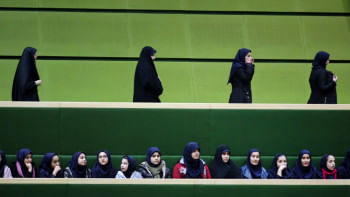
 For all latest news, follow The Daily Star's Google News channel.
For all latest news, follow The Daily Star's Google News channel. 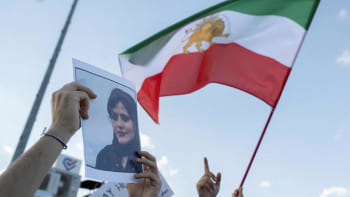
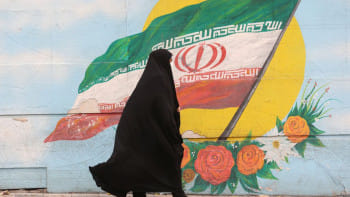






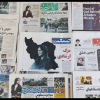
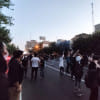


Comments